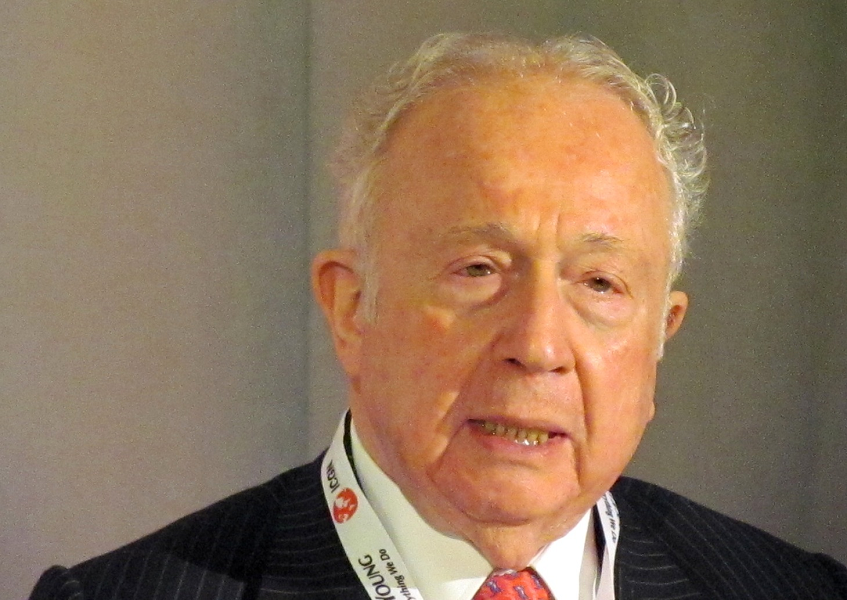BROWSE BY TOPIC
- Bad Brokers
- Compliance Concepts
- Investor Protection
- Investments - Unsuitable
- Investments - Strategies
- Investments - Private
- Features/Scandals
- Companies
- Technology/Internet
- Rules & Regulations
- Crimes
- Investments
- Bad Advisors
- Boiler Rooms
- Hirings/Transitions
- Terminations/Cost Cutting
- Regulators
- Wall Street News
- General News
- Donald Trump & Co.
- Lawsuits/Arbitrations
- Regulatory Sanctions
- Big Banks
- People
TRENDING TAGS
Stories of Interest
- Sarah ten Siethoff is New Associate Director of SEC Investment Management Rulemaking Office
- Catherine Keating Appointed CEO of BNY Mellon Wealth Management
- Credit Suisse to Pay $47Mn to Resolve DOJ Asia Probe
- SEC Chair Clayton Goes 'Hat in Hand' Before Congress on 2019 Budget Request
- SEC's Opening Remarks to the Elder Justice Coordinating Council
- Massachusetts Jury Convicts CA Attorney of Securities Fraud
- Deutsche Bank Says 3 Senior Investment Bankers to Leave Firm
- World’s Biggest Hedge Fund Reportedly ‘Bearish On Financial Assets’
- SEC Fines Constant Contact, Popular Email Marketer, for Overstating Subscriber Numbers
- SocGen Agrees to Pay $1.3 Billion to End Libya, Libor Probes
- Cryptocurrency Exchange Bitfinex Briefly Halts Trading After Cyber Attack
- SEC Names Valerie Szczepanik Senior Advisor for Digital Assets and Innovation
- SEC Modernizes Delivery of Fund Reports, Seeks Public Feedback on Improving Fund Disclosure
- NYSE Says SEC Plan to Limit Exchange Rebates Would Hurt Investors
- Deutsche Bank faces another challenge with Fed stress test
- Former JPMorgan Broker Files racial discrimination suit against company
- $3.3Mn Winning Bid for Lunch with Warren Buffett
- Julie Erhardt is SEC's New Acting Chief Risk Officer
- Chyhe Becker is SEC's New Acting Chief Economist, Acting Director of Economic and Risk Analysis Division
- Getting a Handle on Virtual Currencies - FINRA
ABOUT FINANCIALISH
We seek to provide information, insights and direction that may enable the Financial Community to effectively and efficiently operate in a regulatory risk-free environment by curating content from all over the web.
Stay Informed with the latest fanancialish news.
SUBSCRIBE FOR
NEWSLETTERS & ALERTS
Martin Lipton Sounds Off on Short-Term Quest for Profits -
[Photo: From Alchetron.com]
Martin Lipton, a founding partner of the New York law firm Wachtell Lipton Rosen & Katz, specializes in advising major corporations on mergers and acquisitions. Mr. Lipton, 85, has been instrumental in shaping corporate deal making for decades; he is particularly well known for his efforts to bolster management defenses against hostile takeovers. Mr. Lipton, who set up the firm in 1965 with fellow graduates of NYU Law, continues to practice law and speak out against what he sees as the damage that the short-term drive for earnings has done to the economy.
In an interview with the NYTimes, he discusses the current merger landscape as well as his work to promote alternatives to what he calls “short-termism.”
Q: What trends are you seeing among your clients, in terms of what they are seeking in a transaction?
A: Companies are seeking mergers that do not dilute earnings, as well as mergers that will be viewed as natural extensions of product or of geographic markets - and, in addition, mergers to maintain position in consolidating industries.
Q: With the M&A market having a turbulent and uncertain year so far, what are the dynamics that you’ve observed?
A: The significant influences have been mergers to accommodate and adjust to the impact of new technologies - such as the Oracle acquisition of NetSuite - mergers to achieve top-line growth that is otherwise not obtainable in a slow and low-growth economy - such as Sherwin Williams’s acquisition of Valspar - and mergers to obtain cost synergies and mergers in response to activist pressures, such as the Dupont merger with Dow Chemical. The primary cause of agreed big mergers falling through has been failing to pass the federal antitrust barriers.
[Click Link for Complete Interview]





